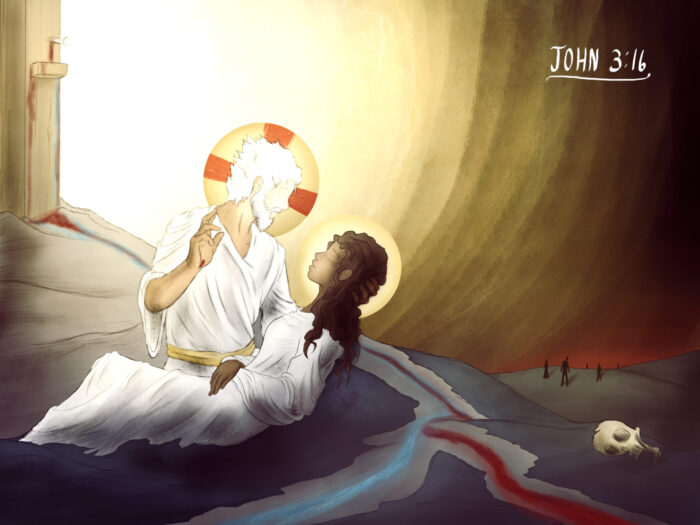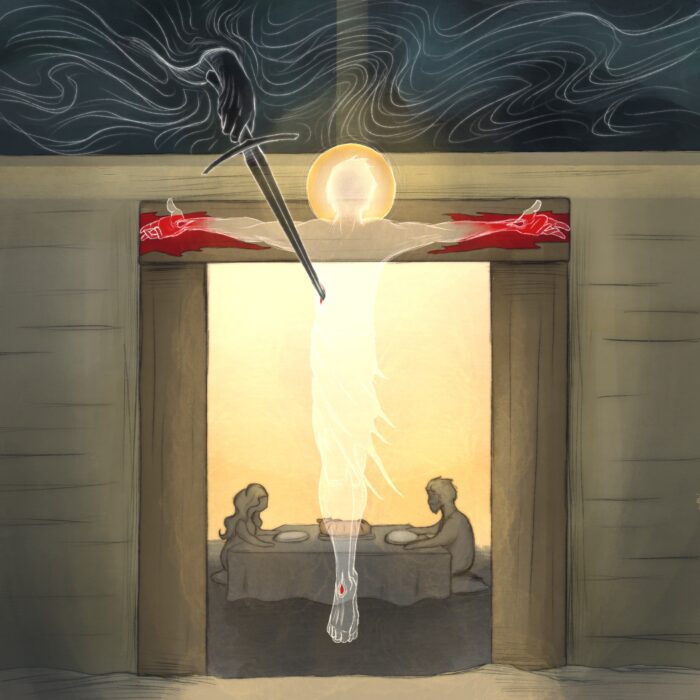John 17:19, “For their sake I consecrate myself that they may be sanctified in the truth.”
Short Thoughts:
The Son set Himself apart as a whole burnt offering through the Spirit to the Father (Heb.9:14), that we too might belong wholly and only to God in Him.
Long Thoughts:
I’m not sure why the ESV translators use the two words “consecrate” and “sanctify” here, but the Greek word is the same. Jesus says that He consecrates / sanctifies / sets Himself apart so that His people might be consecrated / sanctified / set apart in the truth (the truth being the Father’s word, v.17; The Father’s word being, in a sense, all of scripture, and in another sense the message of the gospel, but in the most accurate sense regarding John’s use of it here, I think the Father’s word is the Son’s Father-given witness concerning Himself, the Son’s teaching regarding who He is as the Son of God sent from the Father to manifest the Father to the world).
Jesus’ setting apart of Himself seems to refer to the cross. The cross is ultimate and climactic “setting apart”; it is the culmination of Gethsemane’s “not my will but your’s be done,” (which was itself the vocalization of the Son’s constant posture toward the Father, John 5:19-20); it is the temporal and incarnate manifestation of the Son’s eternal and infinite devotion of His whole being to the Father (ie, His love of the Father, ie, His holiness). When the Son gives Himself wholly and without reserve to the Father in the offering of Himself on the cross, He is—beyond all compare—“sanctifying” Himself (not in the sense of making Himself holy when He was not before, but in the sense that His infinite holiness—which is to say, His infinite devotion to and embrace of the Father—is manifest in the event of the cross). And He must complete this setting apart of Himself if His disciples are to be set apart in the truth….now, that is interesting.
The Son MUST sanctify Himself to the Father on the cross if His people are to be sanctified in the truth. Again, what is the truth in this context? I’ve stated above (and argued in other places) that the truth, the word of God (John 17:17), is nothing other than Christ’s God-given witness to Himself. The “truth” is Who Christ Is as the revelation of the Father to the world (John 8:25-28). So, for Christ’s disciples to be sanctified in the truth is for them to be sanctified in the knowledge of who God is as manifest in the Son.
We are set apart unto God, we are consecrated unto God, we are made His own by grace-given devotion of the soul to Him through the truth about who He is as that truth is manifest in His Son. And Jesus says that this could not happen unless He set Himself apart unto God at the cross. What are we to make of this? I think at least one thing to be said is that we have not truly received the Word of Truth, we have not truly known God in the Son, until we have seen that the crucifixion is part of—indeed, the heart of—that word of truth, that knowledge. God’s word about Himself to His people through His Son is not complete until the Son is crucified and raised again. if we do not know God as the crucified one who rises again, we do not know God. I do not say that we must know that God did this in Christ—we must!—but I say more, I say that we must know that God is this in Christ. We must know that this is who YHWH is. It is the knowledge of who He is by which we are sanctified, consecrated, set apart to Him (John 17:3, 11, etc). And that knowledge, that “word,” that truth is not complete until it includes as its climax the crucifixion of the Beloved Son, who rises again to newness of life.




